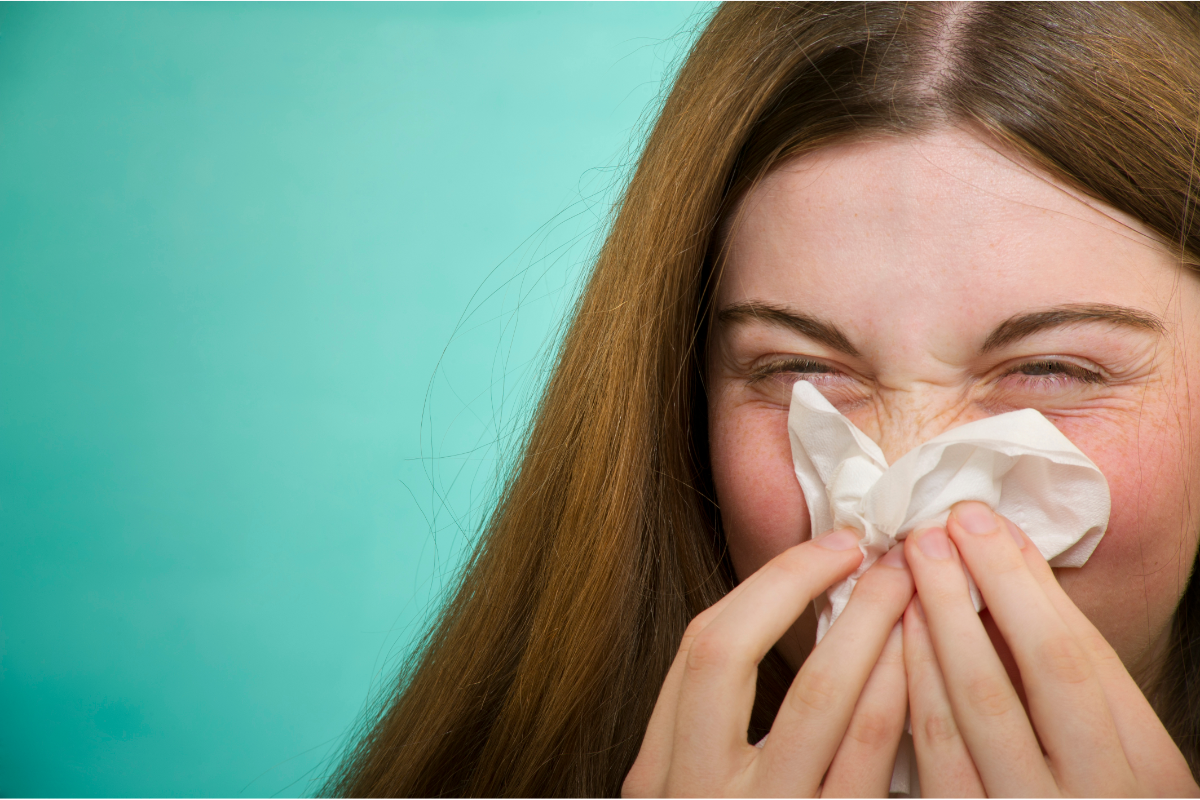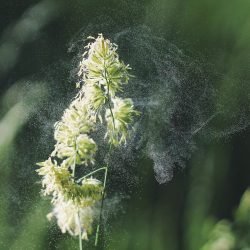Allergies are a real scourge for millions of people around the world. From sneezing and nasal congestion to itching and asthma, allergies have a major impact on quality of life. Faced with all these inconveniences, it’s essential to find an allergy solution that’s both effective and tailored to individual needs. Two options in particular stand out: spirulina, a natural antihistamine with multiple benefits, and cetirizine, a recognised classic treatment. But which of these solutions is the most effective in relieving your allergies and making a lasting improvement to your daily life?
Benefits of spirulina: a natural antihistamine against allergies
Spirulina is widely recognised for its many benefits in allergy management, and its effectiveness has been confirmed by several clinical studies. This natural superfood, rich in nutrients and bioactive compounds such as phycocyanin, acts as a natural antihistamine, inhibiting the release of histamine, the molecule responsible for allergic symptoms. This unique ability to moderate the excessive immune response makes it a promising alternative to traditional antihistamines, particularly for relieving conditions such as allergic rhinitis.
One of the main benefits of spirulina is the significant reduction in allergic symptoms such as nasal congestion, sneezing and respiratory irritation. Thanks to its anti-inflammatory properties, spirulina soothes the respiratory tract and limits the chronic inflammation often associated with allergies. These effects also help to improve sleep quality, which is often disrupted by allergic attacks. Better sleep translates directly into increased energy and daily productivity, enabling allergy sufferers to return to a more comfortable lifestyle.
Spirulina also has an overall effect on the respiratory system, reducing inflammatory reactions and boosting immunity. Its antioxidant components help to neutralise free radicals, which are often involved in the mechanisms that aggravate allergies. By providing long-lasting, natural support, it not only improves immediate symptoms, but also helps to effectively prevent recurrences.
Cetirizine: an effective antihistamine to relieve allergies
| Characteristics | Details of cetirizine |
|---|---|
| Type of medicine | Second generation antihistamine |
| Mode of action | Blocks histamine H1 receptors to prevent allergic symptoms |
| Main indications | – Allergic rhinitis: rapid reduction in nasal and ocular symptoms |
| – Urticaria: soothes itching and redness of the skin | |
| – Seasonal allergies: relief from pollen-related sneezing and congestion | |
| Effective | – Fast-acting, visible results in less than an hour |
| – Effective symptomatic relief for allergic attacks | |
| Benefits | – Less drowsiness than first-generation antihistamines |
| – Suitable for a wide range of allergies | |
| Possible side effects | – Drowsiness in some people |
| – Dry mouth | |
| – Headaches in rare cases | |
| Prolonged use | May cause minor discomfort; use recommended for limited periods |
Spirulina or cetirizine: which solution should you choose to relieve allergies?
Spirulina and cetirizine are both recognised for their effectiveness in treating allergies, but their mode of action and results differ. Comparative studies provide invaluable information for assessing these two approaches and their respective benefits.
Proven efficacy for spirulina
A clinical study published in Acta Otorhinolaryngologica Italica compared the efficacy of spirulina and cetirizine on patients suffering from allergic rhinitis. This research revealed that spirulina, administered at a dose of 2 grams a day for 2 months, produced significantly better results than cetirizine (10 mg/day). Symptoms such as nasal congestion, sneezing and reduced sense of smell were significantly reduced in the spirulina group. In addition, significant improvements were observed in terms of sleep quality and patients’ daily performance.
Another benefit highlighted was spirulina’s ability to reduce inflammatory markers, such as interleukins (IL-1α, IL-1β and IL-4), while increasing levels of IL-10, a natural anti-inflammatory. This gives spirulina unique immunomodulatory properties, making it a sustainable choice for allergy management.
Cetirizine: a rapid but punctual response
Cetirizine, a second-generation antihistamine, works primarily by blocking histamine H1 receptors. Its action rapidly reduces allergic symptoms such as runny nose and urticaria. However, its action remains punctual and symptomatic, with no direct impact on the underlying causes of inflammation. Despite its proven effectiveness, it can cause side effects such as drowsiness, dry mouth and, in rare cases, headaches.
| Criteria | Spirulina | Cetirizine |
|---|---|---|
| Nature | Natural supplement | Synthetic drug |
| Action | Antihistamine and immunomodulator | H1-receptor blocker |
| Efficacy | Long-lasting and progressive | Rapid but occasional |
| Side effects | Rare (nausea, mild digestive problems) | Drowsiness, dry mouth |
Why choose spirulina as a natural antihistamine?
While cetirizine offers rapid relief from acute allergic symptoms, spirulina stands out as a natural, long-lasting solution. Spirulina is an effective natural remedy for allergic rhinitis and seasonal allergies. Thanks to its anti-inflammatory and immunomodulatory effects, it works in depth to reduce allergic reactions and improve general well-being. This superfood is particularly beneficial for sufferers of chronic allergic rhinitis, offering gradual relief without the side effects often associated with synthetic antihistamines. See our tips for boosting your immune system naturally.
Another key benefit of spirulina is its natural origin. Unlike medicines, it contains no chemical compounds that could cause undesirable effects. This makes it an attractive option for those looking for natural, body-friendly alternatives to antihistamines. What’s more, spirulina not only relieves immediate symptoms, it also has a long-term effect by boosting the immune system, helping to prevent recurrences.
For patients suffering from severe symptoms, spirulina can be combined with conventional treatments such as cetirizine. This approach allows you to benefit from the rapid efficacy of antihistamines while enjoying the lasting benefits of spirulina. See also our advice on how to improve your immunity naturally.
How can spirulina be used to combat allergies?
Spirulina is available in various forms, including tablets, capsules and powder. Spirulina powder can be added to smoothies, soups or cooked dishes for optimum nutritional benefit. These options make it easy and versatile to incorporate into your daily diet.
Recommended dosage
To reap the full benefits of spirulina, we recommend a daily dose of 2 to 3 grams. Beginners can start with a small amount, increasing gradually according to their tolerance. This method ensures a smooth transition for the body and maximises the positive effects.
Precautions to be taken
Although spirulina is generally well tolerated, it is contraindicated for people suffering from phenylketonuria or with a history of allergy to algae. If you are taking medication or have specific health problems, it is advisable to consult a health professional before incorporating spirulina into your routine.
FAQ : Spirulina and allergies
- Is spirulina effective against seasonal allergies?
Yes, spirulina acts as a natural antihistamine, inhibiting the release of histamine. Clinical studies have shown that it reduces symptoms such as nasal congestion and sneezing while boosting immunity. - Can spirulina and cetirizine be combined?
Yes, this combination offers immediate relief with cetirizine and lasting effects with spirulina. - What are the possible side effects of spirulina?
Spirulina is generally well tolerated, but may cause slight digestive problems in some people.
Sources
- Pereira L, Valado A. Exploring the therapeutic potential of algae derived food and diet factors in allergy and inflammation. Explor Asthma Allergy. 2024;2:127-47.
- Nourollahian M, Rasoulian B, Gafari A, Anoushiravani M, Jabari F, Bakhshaee M. Clinical comparison of the efficacy of spirulina platensis and cetirizine for treatment of allergic rhinitis. Acta Otorhinolaryngol Ital. 2020 Jun;40(3):224-229. doi: 10.14639/0392-100X-N0139. PMID: 32773785; PMCID: PMC7416373.
- Nourollahian M, Rasoulian B, Gafari A, Anoushiravani M, Jabari F, Bakhshaee M. Clinical comparison of the efficacy of spirulina platensis and cetirizine for treatment of allergic rhinitis. Acta Otorhinolaryngol Ital. 2020 Jun;40(3):224-229. doi: 10.14639/0392-100X-N0139. PMID: 32773785; PMCID: PMC7416373.
- Christina Rahm. “The Science Behind Taking the Right Green Supplements”. PriMera Scientific Surgical Research and Practice 4.3 (2024): 67-76.





